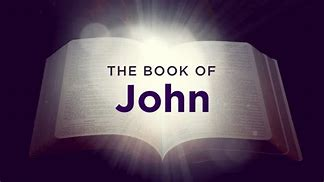The Purpose of This Book - {Interlinear <Greek>}
20:30 - • {μὲν <men>} Now {οὖν <oun>} • {καὶ <kai>} Jesus {ὁ Ἰησοῦς <ho Iēsous>} did {ἐποίησεν <poieō>} many {Πολλὰ <polys> other {ἄλλα <allos>} signs {σημεῖα <sēmeion>} in the presence of {ἐνώπιον <enōpion>} the {τῶν <ho>} disciples, {μαθητῶν <mathētēs>} which {ἃ <hos>} are {ἔστιν <eimi>} not {οὐκ <ou>} written {γεγραμμένα <graphō>} in {ἐν <en>} this {τούτῳ. <houtos>} book; {τῷ βιβλίῳ <ho biblion>}
20:31 - but {δὲ <de>} these {ταῦτα <houtos>} are → written {γέγραπται <graphō>} so that {ἵνα <hina>} you → may → believe {πιστεύητε <pisteuō>} that {ὅτι <hoti>} Jesus {Ἰησοῦς <Iēsous>} is {ἐστιν <eimi>} the {ὁ <ho>} Christ, {χριστὸς <Christos>} the {ὁ <ho>} Son {υἱὸς <huios>} of → God, {τοῦ θεοῦ <ho theos>} and {καὶ <kai>} that {ἵνα <hina>} by → believing {πιστεύοντες <pisteuō>} you → may → have {ἔχητε <echō>} life {ζωὴν <zōē>} in {ἐν <en>} his {αὐτοῦ. <autos>} name. {τῷ ὀνόματι <ho onoma>}

John’s purpose statement and conclusion repeat his major themes: Jesus’ identity as the Christ and Son of God (see 1:41, 34), his selected messianic “signs” (see notes on 1:19–12:50; 2:11), the importance of believing in Jesus, and the gift of eternal life (see 1:12; 3:16; 17:3). On Jesus’ unique status as “Son of God,” see note on 1:14.
John wrote his Gospel, choosing from a large body of material from the life of Jesus. This editorial note should remind us that the Bible is not an exhaustive account of all things, but a sufficient account of necessary things—the things that reveal Jesus to be the Son of God, the Savior of all who trust him.
References:
All contents are reposted from ESV.org.
“Scripture quotations are from The ESV® Bible (The Holy Bible, English Standard Version®), copyright © 2001 by Crossway, a publishing ministry of Good News Publishers. Used by permission.
All rights reserved.”
Comments